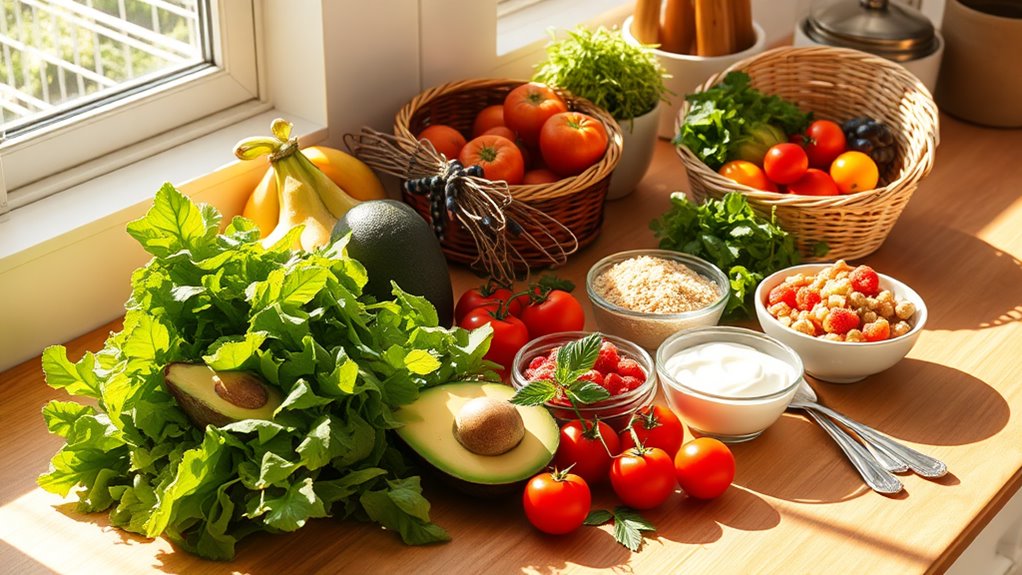I Added These Foods to My Week and Felt Less Bloated
Have you ever wondered how your diet could influence your comfort? Incorporating certain foods can significantly reduce bloating and enhance your digestion. Probiotics, fiber, hydration, and anti-inflammatory ingredients all play a role in how you feel each day. By making a few adjustments to your meals, you might discover a lighter, more satisfying lifestyle. What changes could you make to experience similar benefits?
The Power of Probiotics
When it comes to reducing bloating, probiotics can play a crucial role in promoting a healthy digestive system.
Incorporating inflammation-fighting foods like yogurt, kefir, and fermented vegetables into your diet boosts your gut health. These foods contain live bacteria that help balance your microbiome, ultimately easing bloating. Regularly consuming probiotics can help you feel lighter and more comfortable. Additionally, including probiotic snacks in your daily meals can further enhance your overall digestive wellness.
Incorporating Fiber-Rich Foods
To effectively combat bloating, incorporating fiber-rich foods into your diet is essential, as they promote regular digestion and help maintain a healthy gut.
Focus on whole grains, fruits, and vegetables, such as oats, berries, and leafy greens.
Gradually increasing your fiber intake can prevent discomfort; just remember to balance it with adequate hydration for optimal benefits.
Hydration: The Unsung Hero
Hydration plays a critical role in reducing bloating, and many people overlook its importance in digestive health.
Staying well-hydrated helps maintain optimal digestion by easing your body’s ability to process food and eliminate waste. Aim for at least eight cups of water daily, adjusting for activity levels.
Incorporate hydrating foods like cucumbers and watermelon to support hydration and combat bloating effectively. Additionally, incorporating gut-friendly foods into your morning routine can further enhance digestion and promote overall wellness.
The Benefits of Anti-Inflammatory Ingredients
Incorporating anti-inflammatory ingredients into your diet can significantly alleviate bloating and improve overall digestive health.
Foods like ginger, turmeric, and leafy greens reduce inflammation, promoting gut function. They can help balance gut flora and enhance nutrient absorption. Additionally, including easy anti-inflammatory dinners in your meal planning can make it easier to maintain a healthy diet while enjoying delicious and nourishing foods.
When you include these ingredients regularly, you not only fight bloating but also support a healthier digestive system, leading to greater comfort and well-being.
Mindful Eating Practices
While you may often eat on the go or in front of screens, practicing mindful eating can significantly enhance your digestive experience and help reduce bloating. Focus on your food’s taste, texture, and aroma. Chew slowly, savoring each bite, and listen to your body’s hunger cues. This not only improves digestion but also fosters a healthier relationship with food, leading to reduced discomfort post-meal. Incorporating essential self-care practices into your daily routine can further support overall wellness.
Observing Changes in My Body
As you become more aware of your body’s responses to different foods, you might notice patterns that can help you identify what contributes to bloating.
Keep a food diary to track meals and symptoms. Pay attention to how your body reacts after eating specific foods, especially those high in fiber or fat. Incorporating fermented foods into your diet may help improve gut health and reduce discomfort from bloating.
Adjust your diet based on these observations for improved comfort.

